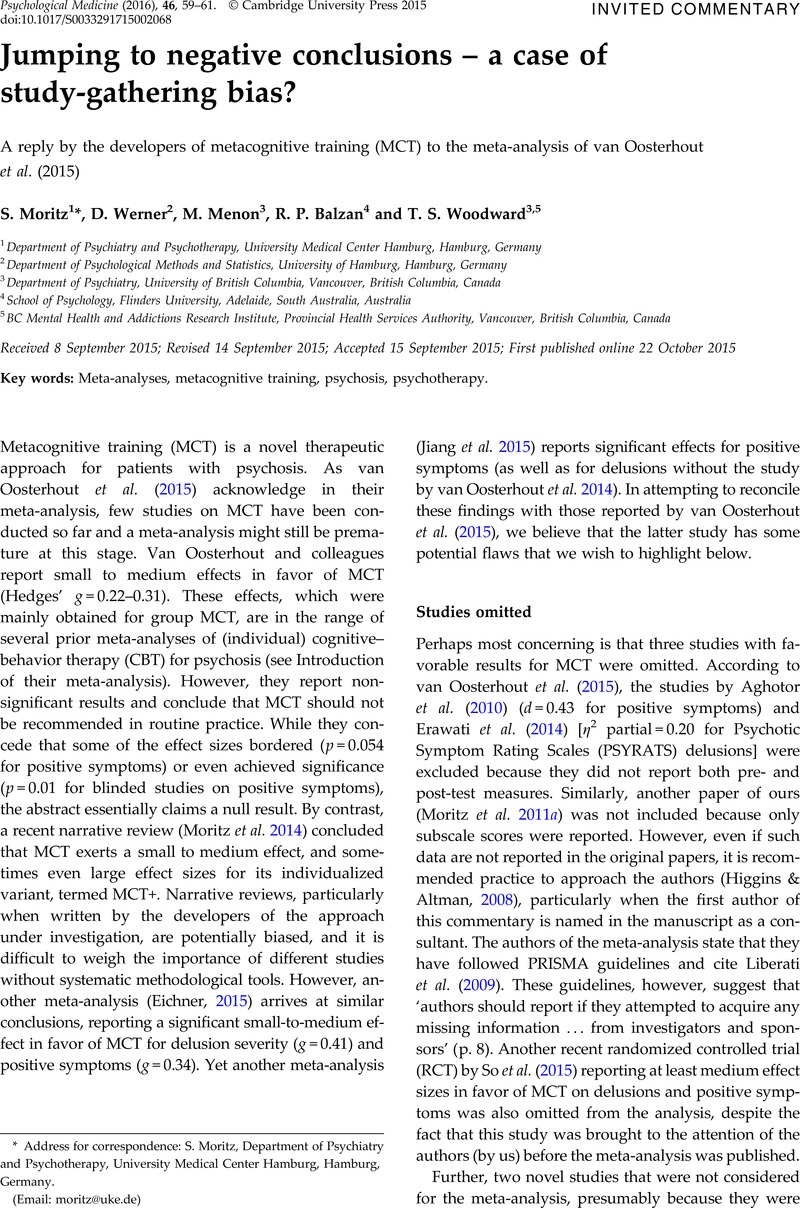Crossref Citations
This article has been cited by the following publications. This list is generated based on data provided by Crossref.
Moritz, Steffen
and
Schneider, Brooke C.
2016.
From the Incomprehensible to the Partially Understood. An Update on Cognitive Bias Research and Metacognitive Training in Schizophrenia Psychosis.
Current Treatment Options in Psychiatry,
Vol. 3,
Issue. 2,
p.
83.
Eichner, Carolin
and
Berna, Fabrice
2016.
Acceptance and Efficacy of Metacognitive Training (MCT) on Positive Symptoms and Delusions in Patients With Schizophrenia: A Meta-analysis Taking Into Account Important Moderators.
Schizophrenia Bulletin,
Vol. 42,
Issue. 4,
p.
952.
van Oosterhout, B.
Smit, F.
Krabbendam, L.
Castelein, S.
Staring, A. B. P.
and
van der Gaag, M.
2016.
Letter to the Editor: Should we focus on quality or quantity in meta-analyses?.
Psychological Medicine,
Vol. 46,
Issue. 9,
p.
2003.
Moritz, Steffen
Krieger, Eva
Bohn, Francesca
and
Veckenstedt, Ruth
2017.
MKT+.
p.
7.
Balzan, Ryan P
Mattiske, Julie K
Delfabbro, Paul
Liu, Dennis
and
Galletly, Cherrie
2019.
Individualized Metacognitive Training (MCT+) Reduces Delusional Symptoms in Psychosis: A Randomized Clinical Trial.
Schizophrenia Bulletin,
Vol. 45,
Issue. 1,
p.
27.
Penney, Danielle
Sauvé, Geneviève
Mendelson, Daniel
Thibaudeau, Élisabeth
Moritz, Steffen
and
Lepage, Martin
2022.
Immediate and Sustained Outcomes and Moderators Associated With Metacognitive Training for Psychosis.
JAMA Psychiatry,
Vol. 79,
Issue. 5,
p.
417.
Moritz, Steffen
Krieger, Eva Carolin
Bohn, Francesca
Elmers, Julia
and
Veckenstedt, Ruth
2023.
MKT+.
p.
9.


